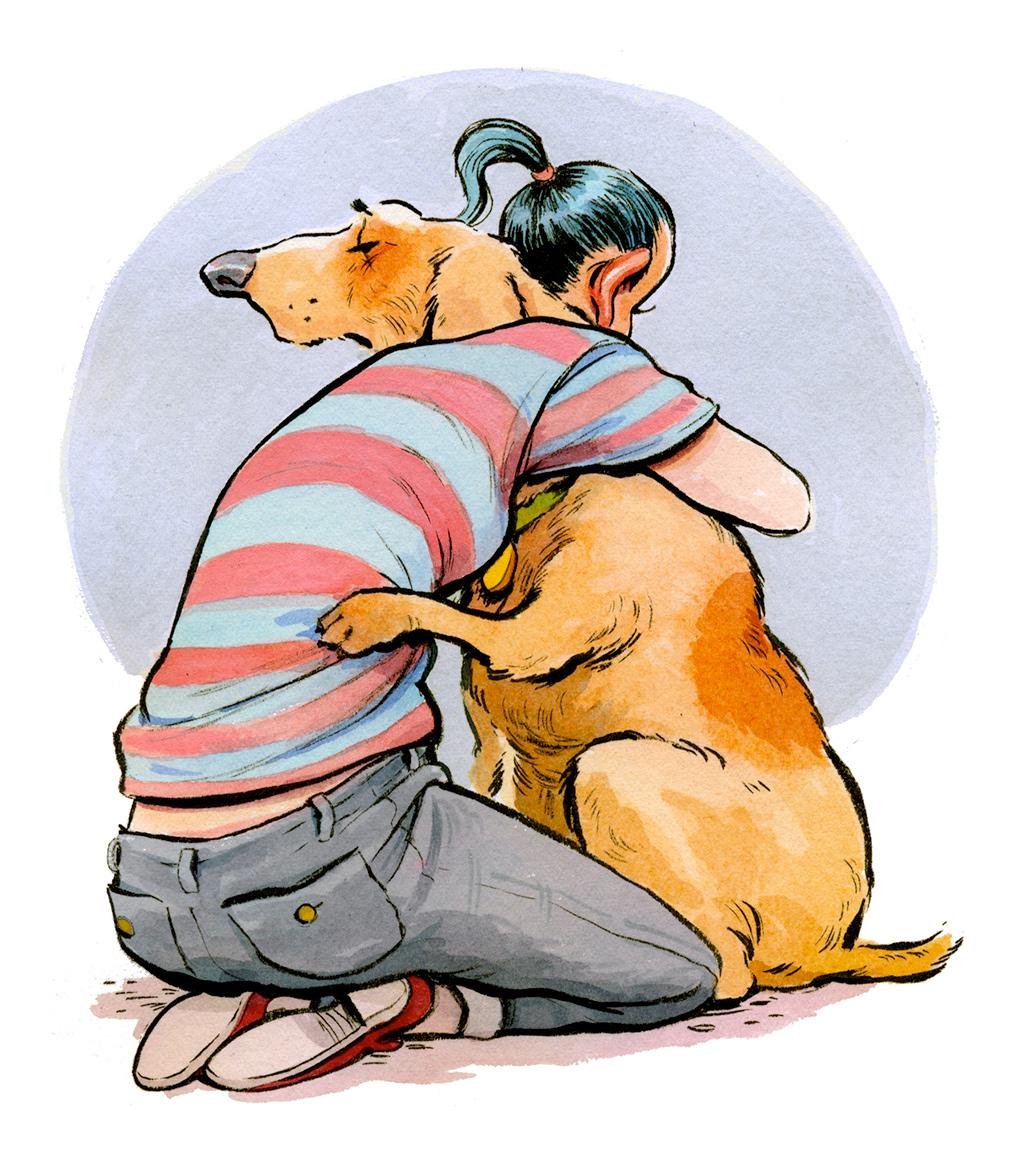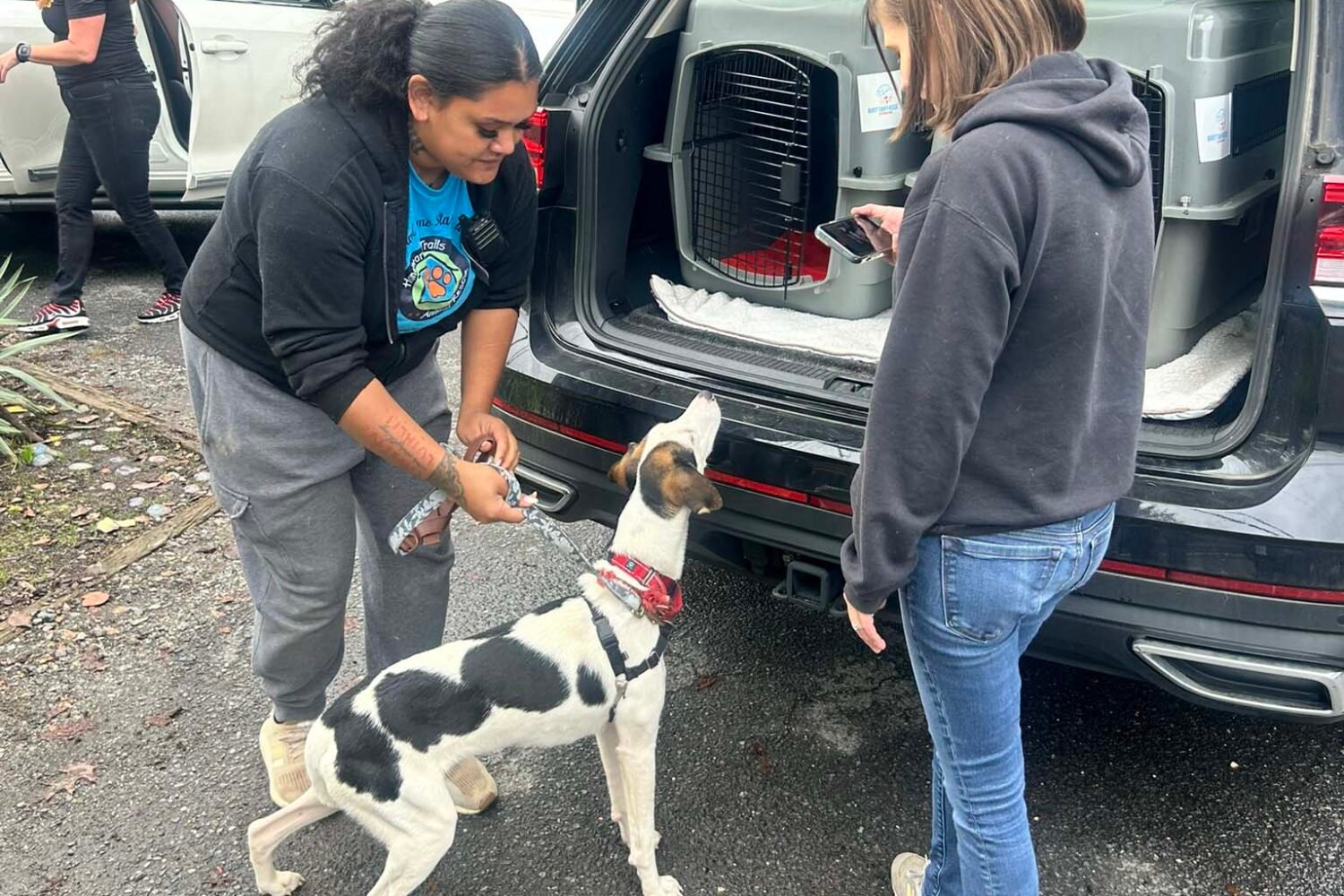For long stretches of last year, Sherrilyn Grant and her two dogs lived in her car in neighborhoods around DC. It was the only place the disabled veteran could think of to get away from her abusive boyfriend after several domestic-violence shelters and veterans’ groups told her they couldn’t accommodate Chelsea, her Shih Tzu–Yorkshire terrier, and Blondie, her beagle-Labrador.
“They’re like my children,” says Grant. Ever since they were puppies, Chelsea and Blondie have been a constant comfort. “What would I have done without them?”
Finally, one support group suggested she look into the Washington Humane Society’s Safe Haven program, which serves people and pets in her situation. Blondie and Chelsea stayed with a foster family while Grant focused on finding a place to live. Today, all three are reunited and living with friends. But that doesn’t change the fact that it took three or four programs turning her down and months living in a car before Grant and her dogs could find help.
And she’s among the lucky ones—some survivors, knowing how tough it can be to find a place that will house their animals, don’t leave their abusers at all.
That reasoning is something advocates want to change. The conversation around domestic violence is growing more urgent, with NFL scandals and crimes on college campuses making headlines. What’s more, the link between animal abuse and crimes against people is gaining prominence. The FBI, for instance, announced this year that it would begin tracking animal abuse the same way it tracks homicides and arson. Experts hope this confluence of events means the moment has arrived for the plight of pets in domestic-violence situations—whether victims themselves or beloved companions hindering human survivors from finding safe shelter—to get the attention it deserves.
Grant says her ex never abused Chelsea or Blondie. But according to the Animal Welfare Institute, surveys show that as many as 86 percent of domestic-violence survivors report that their pets have been threatened, harmed, or killed by their partners.
Allie Phillips, a lawyer and animal advocate, discovered this facet of abuse in her early years practicing law. When a client said she returned to her violent husband because she feared what would happen to her pets if she left them with him, Phillips was inspired to do more. In 2010, she started Sheltering Animals & Families Together (SAF-T), a program that encourages domestic-violence shelters around the country to build on-site pet kennels. While services such as Safe Haven, which locate temporary housing for pets, are vital for many victims, Caroline Jones, president of Arlington’s Doorways for Women and Families shelter, says her staff finds that for some people, being separated from pets during an emotionally volatile time is too much. Doorways is currently the Washington area’s only domestic-violence shelter that can house dogs, cats, and small pets such as turtles and hamsters.
Federal legislation could mean more resources for such services. The Pet and Women Safety (PAWS) Act, introduced in the House and Senate last year, would, among other things, provide funding for shelters to add pet-friendly accommodations. In DC, Mayor Muriel Bowser’s plan to open seven new homeless shelters could also be an opportunity to serve four-legged survivors. Though no formal plans are in place, Blair Decker, a lawyer who works with Safe Haven, says she and her team hope to collaborate with the downtown women’s shelter set to open this year to bring at least one on-site kennel to the District. For survivors unwilling to leave their best friends behind, it could make a life-or-death difference.
Chicago writer Gwendolyn Purdom can be reached at gwenpurdom@gmail.com. On Twitter, she’s @gwenpurdom.
This article appears in our May 2016 issue of Washingtonian.



















